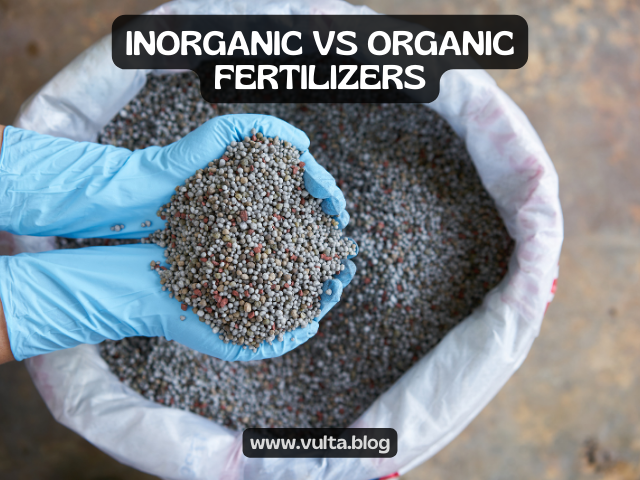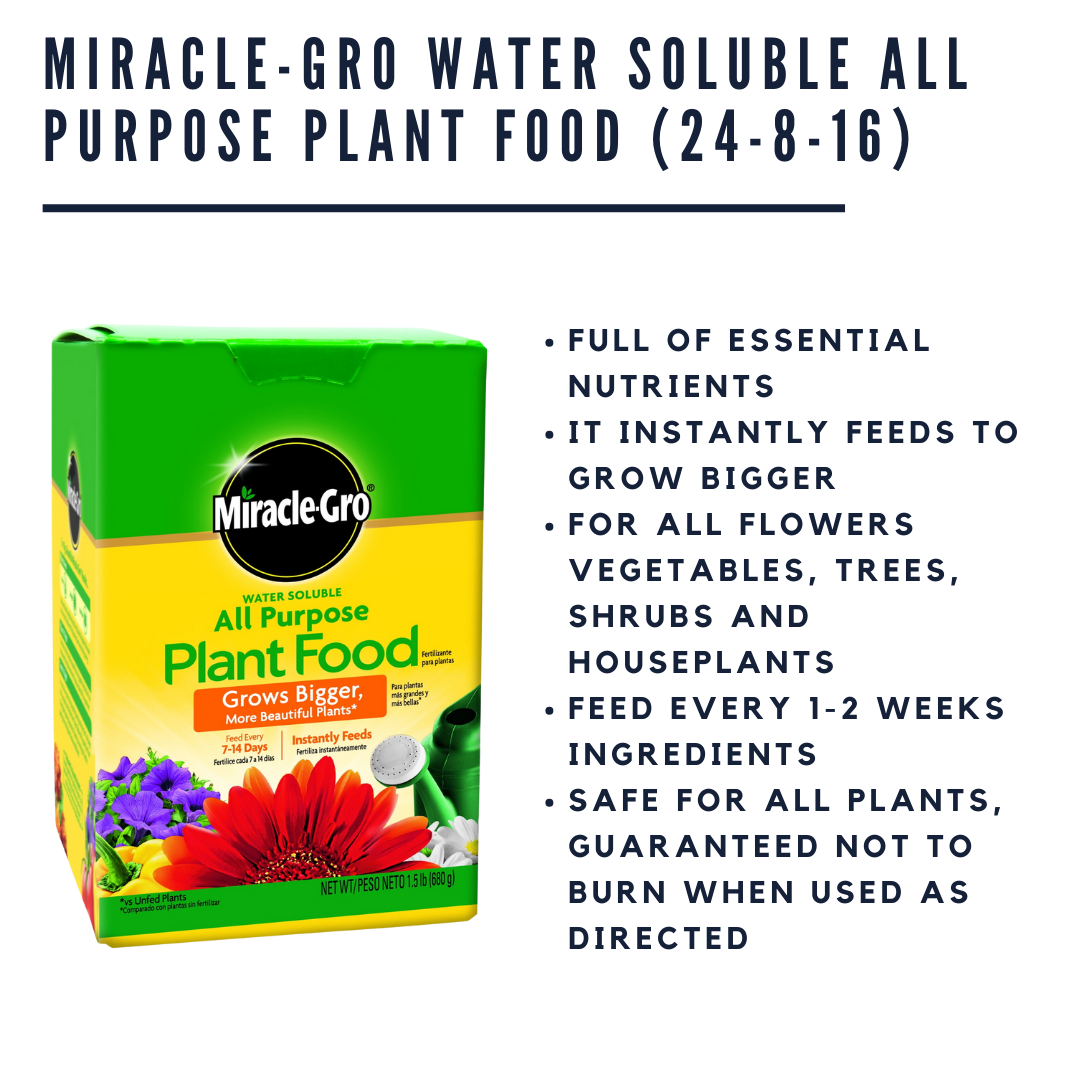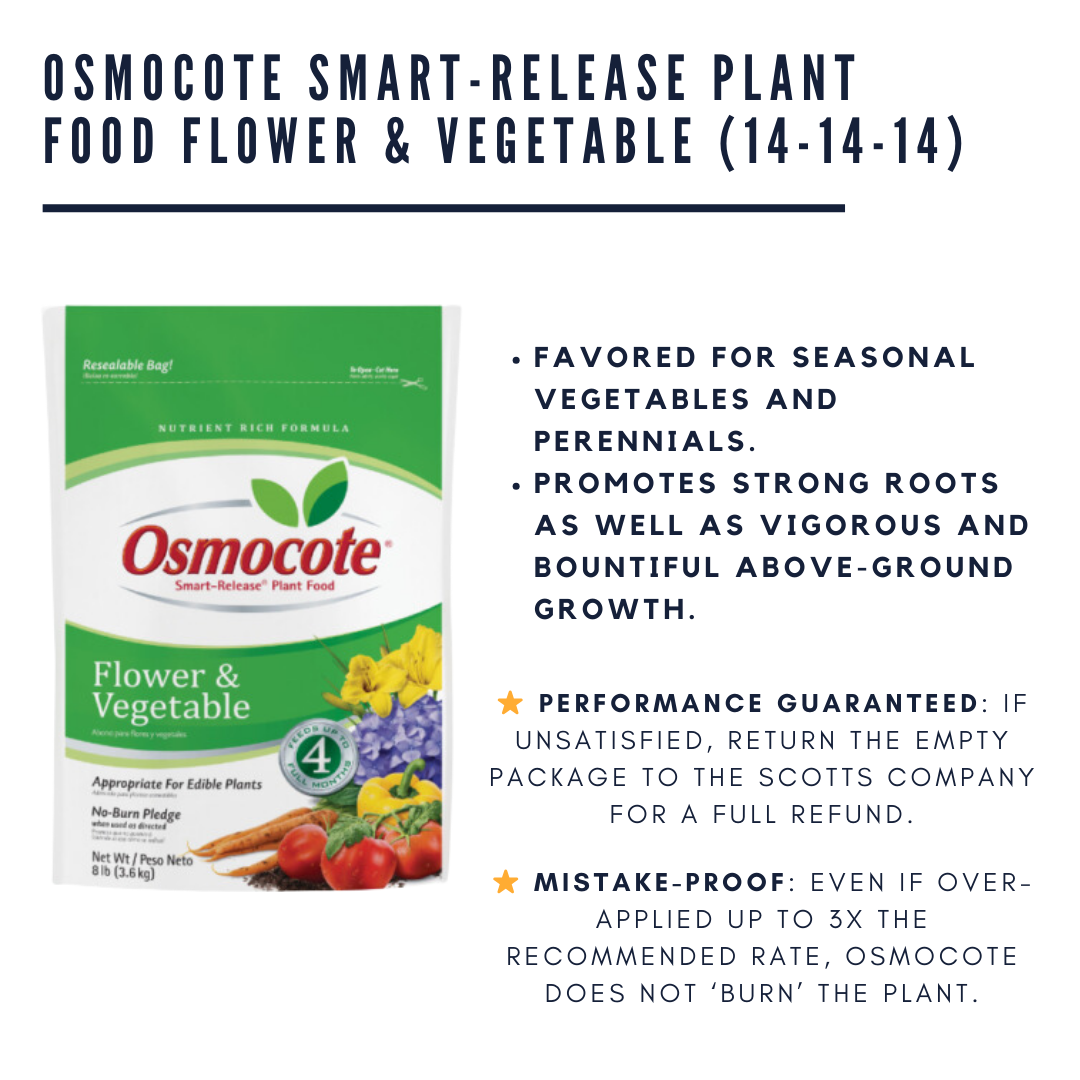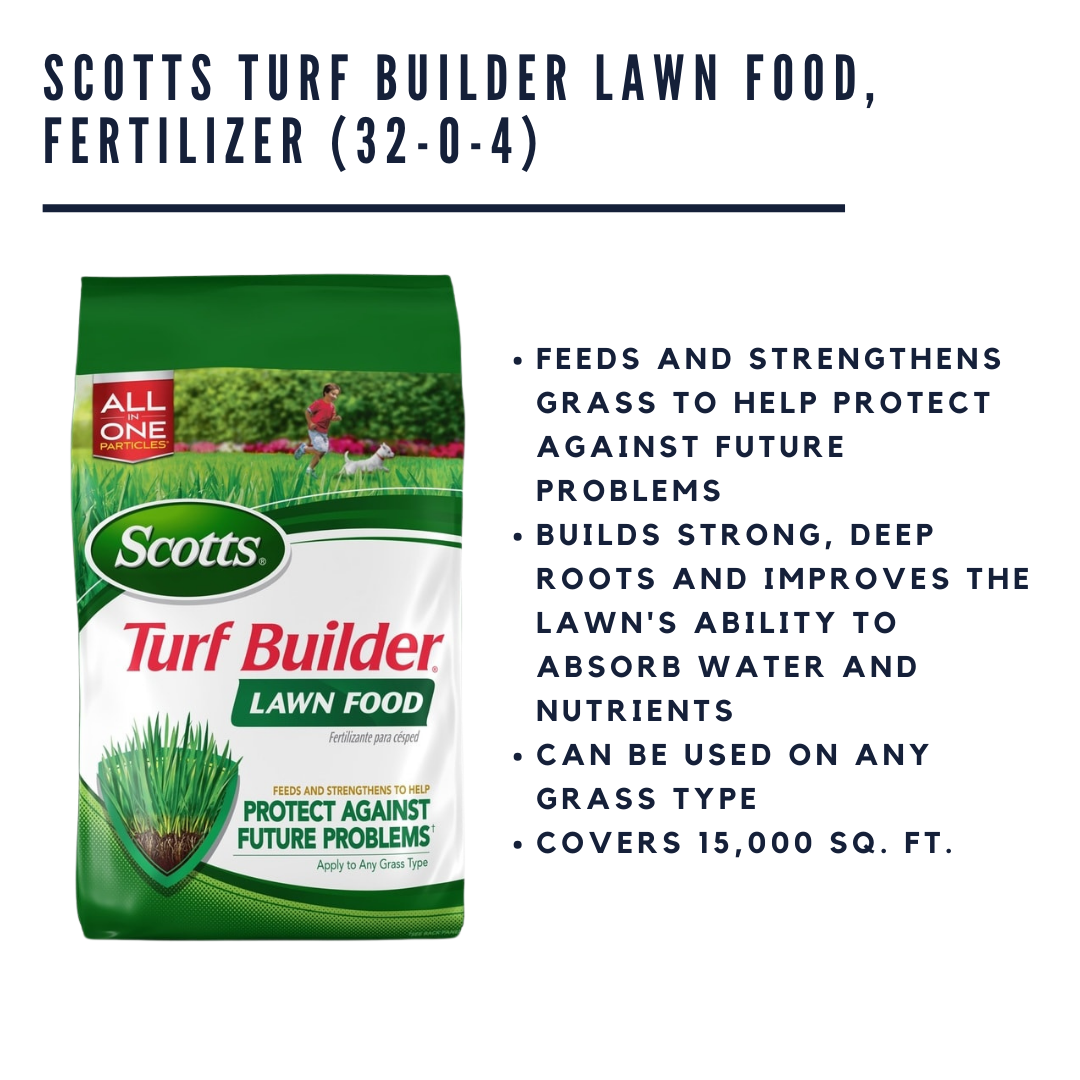Inorganic vs Organic Fertilizers: What to choose? And Why?
Have you ever wondered what the difference is between organic and inorganic fertilizers? Then this blog post can help you! Come explore with us finding out the key differences between inorganic and organic fertilizers to make an informed choice for your plants.

What is the difference between inorganic and organic fertilizers?
Organic fertilizers are made out of natural substances, while inorganic fertilizers are manufactured chemically.
Examples of Organic Fertilizers:
- Compost (waste products of fruits and vegetables): Rich in organic matter, compost improves soil structure and provides a balanced mix of nutrients. Suitable for a wide range of plants.
- Manure (poop from animals): High in nitrogen, phosphorus, and potassium. Effective for vegetable gardens, fruit trees, and flowers, contributing to overall soil fertility.
- Bone Meal (grounded bones): A good source of phosphorus and calcium, beneficial for flowering plants, bulbs, and root crops.
Examples of Inorganic Fertilizers:
- Miracle-Gro Water Soluble All Purpose Plant Food (24-8-16): This balanced fertilizer is suitable for a wide range of plants. The higher nitrogen content promotes lush green growth, while phosphorus and potassium support flowering and overall plant health.
- Osmocote Smart-Release Flower and Vegetable Plant Food (14-14-14): With an equal balance of nitrogen, phosphorus, and potassium, this slow-release fertilizer is effective for promoting balanced growth in flowering plants and vegetables.
- Scotts Turf Builder Lawn Food (32-0-4): Designed for lawns, this fertilizer has a higher nitrogen content to promote healthy grass growth. The absence of phosphorus makes it suitable for established lawns where root development is less critical.

Miracle-Gro Water Soluble All Purpose Plant Food
Fertilizer for Indoor or Outdoor Flowers, Vegetables or Trees, 8 oz.
Fertilizer Analysis: 24-8-16

Osmocote Smart-Release Plant Food Flower & Vegetable (14-14-14)
OSMOCOTE’S DIRECTIONS FOR USE: 1 lb. covers 40 sq. ft. (approx. 6½’ x 6½’). Mix into 1 – 3” of soil. Applicator included. Apply to vegetable gardens and mulched areas around ornamental trees / shrubs, and raised beds.
Fertilizer Analysis: 14-14-14

Scotts Turf Builder Lawn Food, Fertilizer
for All Grass Types, 15,000 sq. ft., 37.5 lbs.
Fertilizer Analysis: 32-0-4
Advantages and Disadvantages
Before we start reasoning on which fertilizers to use, let's first explore how they affect plants.
Organic Fertilizers
Advantages:
- Slow Release: Organic fertilizers release nutrients slowly as they break down, providing a steady and prolonged nutrient supply to plants.
- Soil Structure Improvement: They contribute to soil structure and water retention, promoting overall soil health.
- Environmental Friendliness: Organic fertilizers are often considered more environmentally friendly as they pose fewer risks of water pollution.
Disadvantages:
- Longer Time Growth: It may take longer for plants to show the effects of organic fertilizers compared to the rapid response of inorganic counterparts.
Inorganic Fertilizers
Advantages:
- Nutrient Concentration: Inorganic fertilizers often have a higher concentration of specific nutrients, providing a quick and targeted nutrient boost to plants.
- Fast-Acting: They are generally more quickly absorbed by plants, offering a rapid response to nutrient deficiencies.
- Precision: Inorganic fertilizers allow for precise control over nutrient ratios, enabling tailored nutrition for specific plants.
Disadvantages:
- Worsens Soil Health: Continuous use of inorganic fertilizers without organic matter may impact long-term soil health and microbial activity.
What to choose?
Although inorganic fertilizers do provide a faster result than organic fertilizers, based on my research, it seems like it is better to opt for a balanced approach than to rely on inorganic fertilizers alone so as not to cause soil degradation.
What do you mean by that?
You see, the prolonged use of inorganic fertilizers (chemically produced fertilizers) can worsen the health of the soil.
Click for more details
"Excessive application of chemical fertilizers can have adverse effects, including leaching, water pollution, soil acidification, and a decrease in the availability of trace elements. This can also lead to soil alkalization"
...
"Chemical fertilizers can accelerate the decomposition of soil organic matter, resulting in the degradation of soil structure and a reduction in soil aggregation. Asa consequence, nutrients can be lost from the soil through fixation, leaching, and gas emissions, leading to decreased fertilizer use efficiency."
...
"Moreover, integrated nutrient management practices, such as combining 50% of the nutrients from chemical fertilizers and 50% from organic sources like farmyard manure, green manuring, and sesbania green manure, have shown significant effects in enhancing soil physical properties and promoting sustainable crop productivity."
So while it is true that using inorganic fertilizers provides faster growth, it is preferable to alternate the use of inorganic and organic fertilizers in order to reduce the risk of damage that inorganic fertilizers can do.
How you alternate it is up to you. Just don't rely on inorganic fertilizers alone; it is not recommended.
Interested in making a garden? This blog post might help you.

Copyright ©2024 by Marshall Vulta





Comments ()